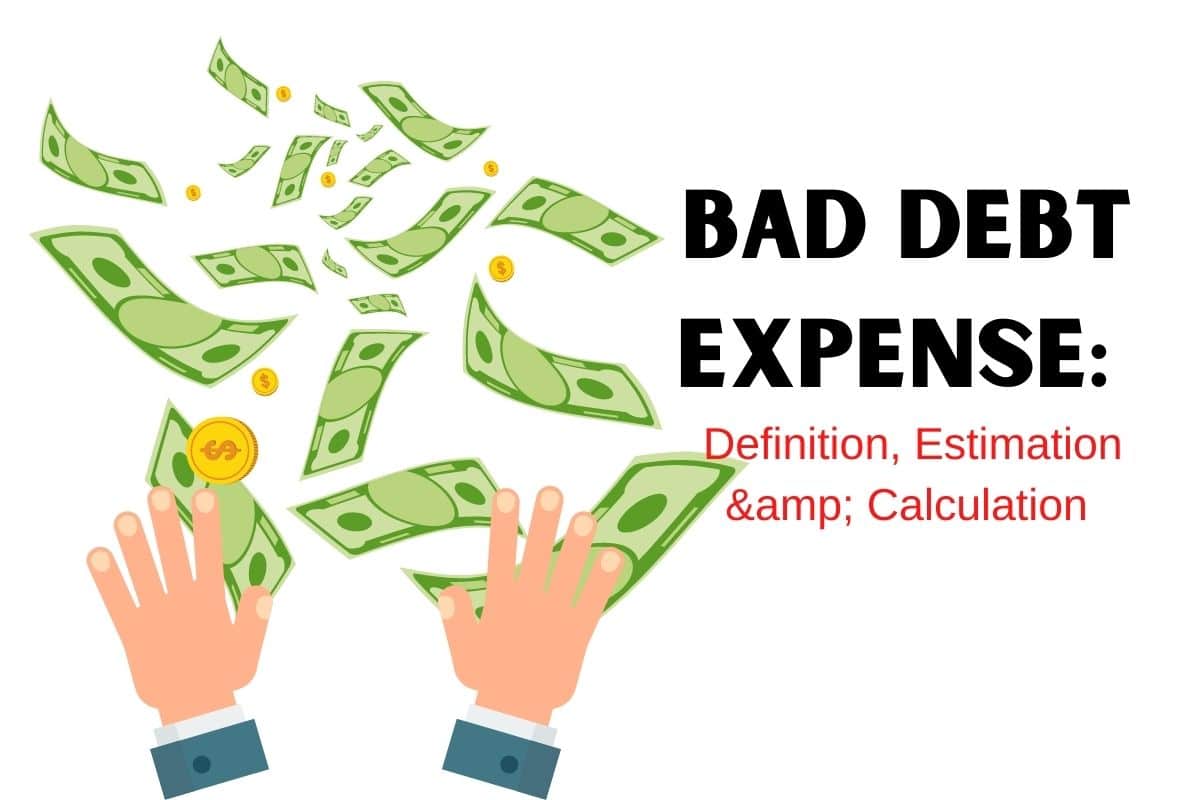Understanding Power of Attorney is critical to creating an Estate Plan that covers all of your bases. Having a Financial Power of Attorney (POA) in place guarantees that your affairs are managed when it matters most – when you are unable to do it yourself.
If you’ve ever wondered, “What is a Financial Power of Attorney and do I need one?” as part of your comprehensive Estate Plan, we’ll cover everything you need to know about Financial POAs. And if you want to learn more about Power of Attorney in general, we’ve got you covered.
Every step of the way, in every situation, our guide covers the top five things you should know. Continue reading to find out the meaning of Durable Financial Power of Attorney, their roles, and how to choose one.
What is the Financial Power of Attorney?
A financial power of attorney (POA) is a legal document that authorizes a trusted agent to engage in financial matters on behalf of the principal agent. The former is also known as the attorney-in-fact, whereas the principal agent is the individual who delegated authority. This type of POA is often known as a generic power of attorney.
What is the Durable Financial Power of Attorney?
A Durable Financial Power of Attorney is simply the word used to describe someone who can act on your behalf even if you are incapacitated and unable to voice your wishes or make judgments. It’s usual to question what powers a Durable Power of Attorney has, and we’ll get to that in a minute. But, for the time being, the most important thing to understand about a Financial POA is that it will cover all financial problems in your life (whether professional or personal), but it will not cover medical decisions until you specifically state so in your papers.
Two more points: some states will automatically consider a Financial Power of Attorney “durable,” which means it will remain in effect even if you become incapacitated. Also, unless you specify differently in your Estate Plan, the function terminates at your death (for example, your POA could then become the Trustee of your Trust or Executor of your Will).
Living Will vs. Durable Power of Attorney
A Durable Power of Attorney and a Living Will are both legal documents with important features. In this context, “POA” refers to Medical Power of Attorney (not Financial Power of Attorney). The main distinction between the two is as follows.
If you are suddenly unable to make healthcare decisions on your own, a Durable Medical Power of Attorney can make them for you.
A Living Will expresses your final desire for medical care at the end of life. It appoints someone to guarantee that your declaration on life-saving measures is followed (whether you want them, don’t want them, or have particular thoughts about how extensive they should be).
How Does Financial Power of Attorney Work
A financial POA is most commonly used in the event of a medical emergency. When you’re sick, your every day financial demands may not be top of mind. But do those requirements vanish just because you’re in a hospital bed? Obviously not. Bills must still be paid, and accounts must be managed, such as rent or mortgage payments and insurance fees.
Here, financial is the crucial term. Just as a medical POA can only make medical decisions, a financial POA can only make financial decisions if you are unable to do so yourself.
The fundamental reason for drafting a financial POA, like most legal documents, is to shield yourself and your family from a legal dispute. In this scenario, the goal is to ensure that someone trustworthy is always present to decide what should happen to your money.
When you’re out of commission, the last thing you want is for someone you don’t know to interfere with your financial future! But that’s exactly what might happen if you’re unavailable to make financial decisions and don’t have a financial POA. At that point, going through the courts to regain control may be unavoidable.
When Should You Use a Financial Power of Attorney?
Do you know how some fortune tellers believe their crystal ball can see into the future? We’re sorry, but it’s not reliable—there’s no way of knowing when (or if) you’ll become incapacitated and require someone to manage your affairs for you.
What is our recommendation? Create your financial POA right away. You can always change it as your life progresses. That way, you’ve covered all of your bases and have what you need if you need it.
When Does a Financial Power of Attorney Become Active?
When your financial POA becomes effective is entirely up to you. It will be determined by how you phrase it in your document. There are two options for timing this.
#1. Effective Immediately
In the first instance, the financial POA authorizes your agent to act on your behalf even though you are present and not disabled. (No, being handicapped does not imply having your head chopped off. It’s just a ten-dollar term for losing the power to command people what to do.)
If you’re married, you’ll most likely want your spouse to be allowed to make financial decisions in the event of a medical emergency. In that circumstances, making the paper effective right away is a wise decision. In general, the more closely linked the agent is, the more probable it is that the POA will be effective immediately.
If you’re regularly on the road and have a lot of financial needs that need your official approval, making it immediately effective could be a fantastic solution. Or perhaps you anticipate being absent for a certain transaction that cannot wait for your return.
#2. Associated with an Event
The second method to shape your financial POA is to make it effective only when an incapacitating event occurs. This is characterized as a “springing power of attorney” in the legal field, possibly because it takes effect when the principal has lost their spring in their step. Some of the verifiable situations that could trigger a financial POA are as follows:
- Coma
- The onset of Alzheimer’s disease
- Mental Illness
- Failure to communicate
When a financial POA is linked to an incapacitating incident, your agent’s power becomes effective only after one or more doctors certify that you are physically or mentally incapable to make decisions.
Consider naming one of your children or someone distantly connected as your agent. A springing power of attorney is an excellent alternative.
So, whether it’s current or related to a prospective future event, your agent only gains the power to manage your finances when you grant it.
What are the Responsibilities of a Financial Power of Attorney?
In a nutshell, you can have as little or as much as you desire. You can give him or her extensive powers, allowing them to perform everything from making investment decisions to signing checks, or you can give them a specific, limited task, such as signing for one trade or transaction if you are unavailable.
Some of the roles and obligations that a Financial POA may do include:
- Banking and other business transactions
- Beneficiary exchanges
- Claims/Litigation
- Transactions involving estates
- Management of government benefits (Medicare/Unemployment/Social Security)
- Management of investments
- Making philanthropic contributions
- Payment of bills
- Property administration
- Pension benefits
- Security deposit boxes
- Concerns about taxes
- Transactions of trust
- And there’s more…
When you appoint a Financial Power of Attorney, it becomes effective. Often, the language in the document will read as a precaution to guarantee that someone is available to step in if you become disabled, but it might also be for a specified time period (for example, you will reside overseas for two years or you will be unable to attend a real estate signing). As previously stated, Financial Power of Attorney terminates automatically upon your death. The Executor of your Will or Trustee of your Trust would then take over.
How To Choose a Durable Financial Power of Attorney
Choosing your Financial POA can be difficult, but you should take your time to ensure that you are confident in your selection and that you trust the person you name. It will be well worth the time you will spend determining in the long run. Of course, the most critical factor is trust – you’re actually putting your livelihood and financial security in the hands of someone else, so make an informed decision.
From the standpoint of trust, it appears logical to choose a family member who is close to you. However, because emotions can play a role and the obligations might be difficult, the POA you choose may not always be the person closest to you. Finally, as long as you’re putting someone you trust in the role, you’ll be more confident in your decision.
Do you want to know how to get a Durable Financial Power of Attorney? The procedure of establishing POA is pretty simple; the steps below break it down:
#1. Determine the necessity.
Do you really require a Financial POA? If you’re married and have joint assets, you may not need to do anything right now. Similarly, if your assets are held in a Living Trust and you’ve selected a Trustee to act on your behalf, a Financial POA may not be necessary at this time. However, a Durable Financial POA can still be beneficial, and it can be the same person as your Trustee.
#2. Choose an agent.
Choosing somebody to appoint as your POA might be tough, but if you’re unsure, you can seek advice from trusted people in your life. Your family, an attorney, a counselor, or even your spiritual leader, if you have one, can all be helpful.
#3. Assess the forms
Make sure you understand your state’s regulations and, if possible, use state-specific forms. You might also ask your bank and other financial institutions and organizations what forms they prefer. This will enable easier recognition, allowing them to authorize a POA more swiftly if necessary.
#4. Notarize the power of attorney
Your Financial POA should be in writing and signed in front of witnesses and a notary. While POAs are not often required to be filed with any agency, you should share it with the right individuals in your life (friends and family, as well as the agent you name as POA). It should be noted that POAs pertaining to real estate may necessitate additional formalities, such as recording.
#5. Review
You should check your Financial POA on a regular basis to verify that the powers you grant are still suitable. Consider whether the agent you named is still willing and, more crucially, able to work on your behalf. As needed, update.
What is the Purpose of a Financial Power of Attorney?
A Financial Power of Attorney is an estate planning component that guarantees financial matters in your estate are handled properly and responsibly. Knowing that your financial obligations, assets, retirement, bills, and everything else in your financial world are in good hands can provide a great deal of comfort. If you have any financial responsibilities or assets, you should think about creating a Financial POA.
When Does a Durable Power of Attorney End/Expire?
When you die, your durable power of attorney automatically terminates. That means you can’t delegate authority to your agent to conduct things like paying your debts, making funeral or burial preparations, or transferring your property to the persons who inherit it after your death. If you want your agent to have power over your affairs after your death, name that person as your executor in your will.
Your durable power of attorney will also expire if;
- You revoke it: You can revoke a durable power of attorney at any moment if you are mentally competent.
- You file for divorce: If your spouse is your agent and your divorce, your ex-spouse’s authority is automatically removed in a few states. In other states, you must cancel your existing power of attorney in order to remove your ex-spouse’s authority. In any event, it’s a good idea to start fresh as soon as you file for divorce.
- Your document is declared void by a court of law: Although it is uncommon, a court may declare your document invalid if it determines that you were not mentally competent at the time you signed it, or that you were the victim of fraud or undue influence.
- There is no agent available: To avoid this issue, include a backup agent in your document.
Other Types of Powers of Attorney
A financial POA is one example of a POA. There are others, depending on the situation:
#1. Durable Power of Attorney
A durable power of attorney normally indicates that the principal’s power of attorney rights are valid for the duration of the principal’s disability. That authority may be terminated when the principal dies or when the agent’s authorization is revoked for any other reason.
However, depending on where you live, durable power of attorney standards may differ in terms of how long your agent’s authority is valid. Some states consider all power of attorney documents to be durable by default, which means that your agent’s authority to manage your financial affairs is automatically valid for the duration of your infirmity.
In other states, however, if you desire a durable power of attorney, the term of your agent’s rights must be specified in the power of attorney instrument. If it is not stated, the powers of the financial POA cease to exist as soon as your doctor certifies that you are unable to make decisions on your own.
#2. Limited Power of Attorney
A limited POA is one in which the agent’s rights are restricted to specific financial decisions or one-time transactions. For example, you may have a restricted POA to close a certain real estate transaction on your behalf. Or perhaps you know you’ll be out of the country in May and grant limited POA for that time period.
#3. Medical Power of Attorney
A medical POA empowers the agent to make critical medical decisions regarding the principal’s health care, particularly if the principal becomes seriously ill or incapacitated.
Let’s now go over how to fill out a financial POA form.
Making a Financial Power of Attorney Form
A financial POA must be signed in front of a notary public to be legally binding. In some cases, the document may also need the presence of a witness at the time of signature. In some areas, the agent must sign to demonstrate acceptance of the assignment.
Filling out your state’s official form is a good place to start when creating a financial POA. However, keep in mind that some banks demand you to utilize their own specialized paperwork in order for your agent to conduct business on your behalf.
Similarly, certain lenders, title insurance agencies, and closing agents require you to fill out specific documents before they will accept an agent’s acts. Finally, some people end up with more than one financial asset.
- POWER OF ATTORNEY VS EXECUTOR: Difference Between Power of Attorney & Executor
- INSURANCE SALES REPRESENTATIVE: How To Become An Insurance Sales Representative In 2023
- CONSERVATORSHIP: How to Get Conservatorship
- OPEN LISTING AGREEMENT: Definition and Everything You Need to Know (Updated!!!)






